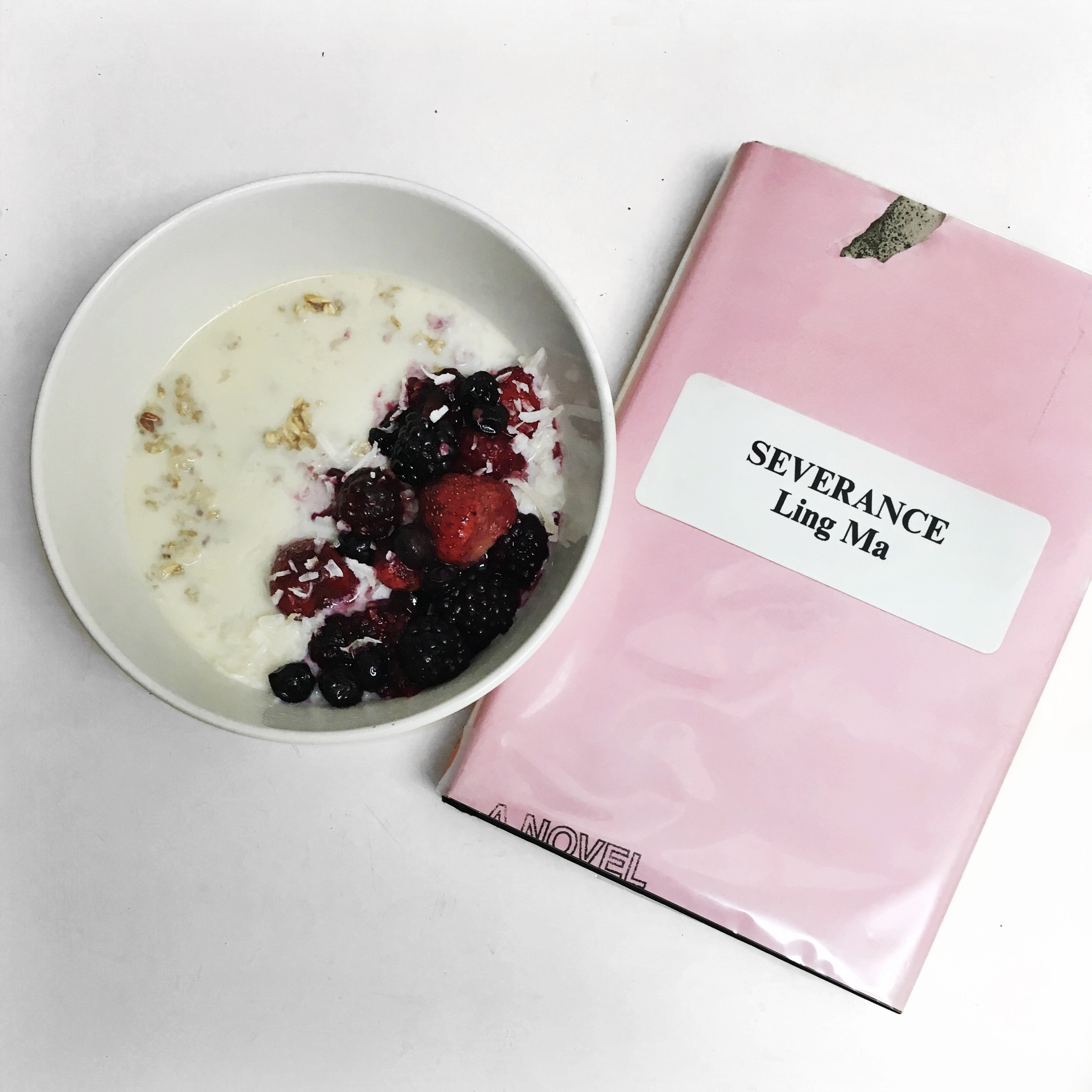I used to post brief reviews of books I’d read on a monthly basis — until January this year, when I abruptly stopped for a hodgepodge of vague reasons ranging from getting a “regular job” to focusing on my novel to investing more in my relationships. But I couldn’t let 2018 go by without sharing books I loved that I think you might love too.
Here are my 11 favorite books of the year — along with photos of what I ate or drank while reading them. Why 11? I like the number better than 10, perhaps because my birthday’s in November. The list is ordered by the level of my enjoyment:
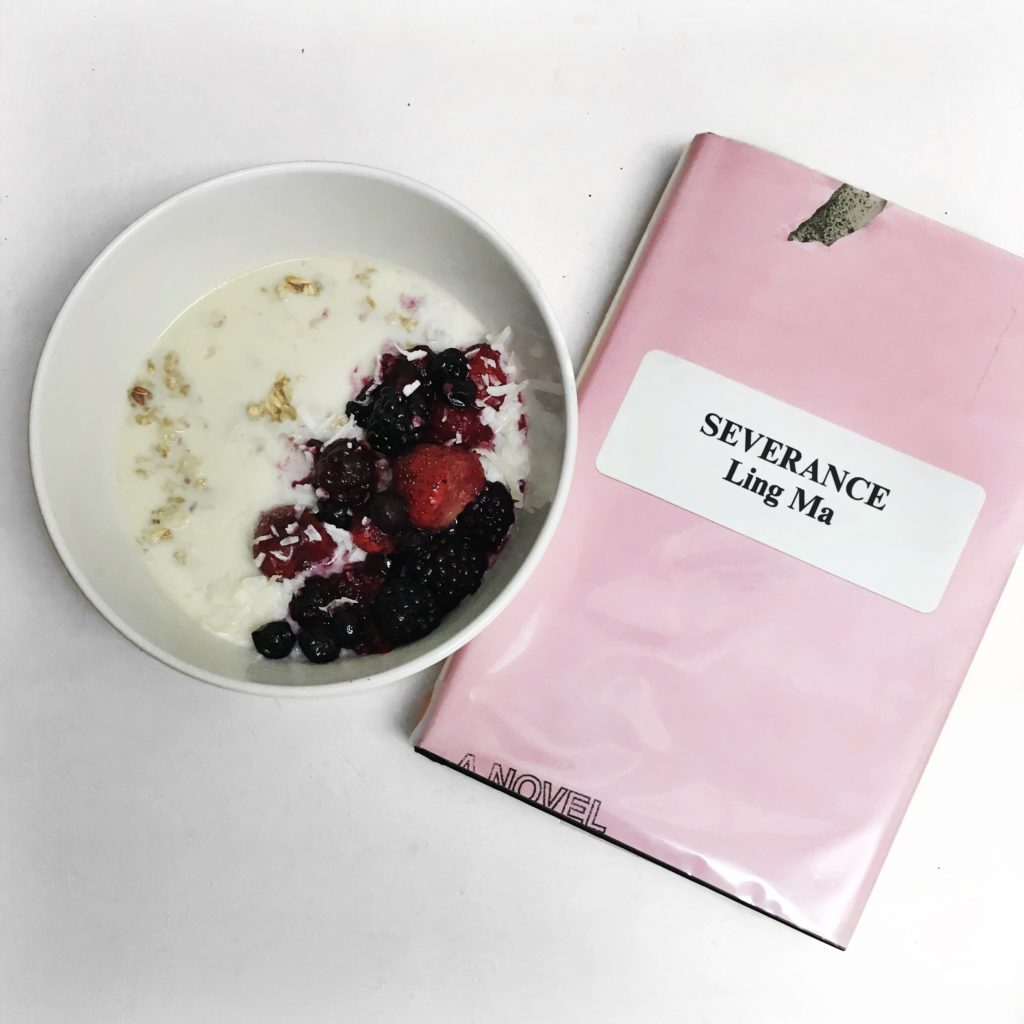
Severance by Ling Ma (FSG, 2018)
“The past is a black hole, cut into the present day like a wound, and if you come too close, you can get sucked in. You have to keep moving.”
*
This apocalyptic novel is insanely good. The world is in the grip of a new disease called Shen Fever, which causes people to mechanically repeat rote tasks they did in their lives lives, then after a few weeks, to die. Most of the US is decimated over the course of a few months — and a small caravan of survivors band together to travel to a safe house of sorts — but the guy leading them slowly reveals himself to be a religious autocrat.
But this novel is so much more than an apocalyptic story — it’s the story of Candace, a twenty-something girl who moved to NYC after the death of her parents, her memories of family, her loneliness, her search for a sense of being — and it’s about our world, the rote repetitiveness of our jobs, our lives, and the meaning and purpose of all of it.
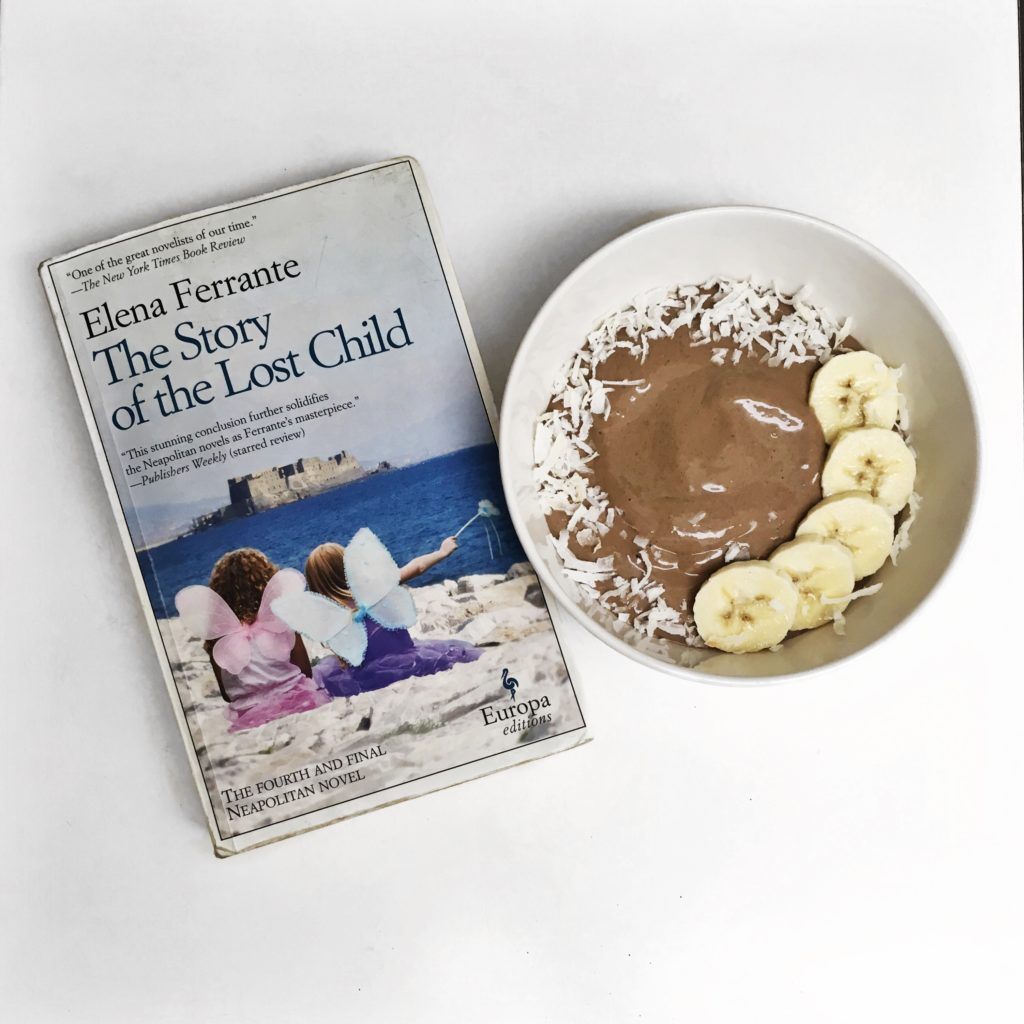
The Story of the Lost Child by Elena Ferrante, trans. Ann Goldstein (Europa Editions, translated to English 2015, originally published 2014)
“Everything moves. A wish, a fantasy travels more swiftly than blood.”
*
I put the last of Elena Ferrante’s Neapolitan novels here, but really, I loved all four of them. They remind me of how short but also how long a life is — long enough for the things that matter to you to completely change, for relationships that seemed unalterable to alter dramatically, for fortunes to reverse and reverse themselves again, long enough really to live several lives, each almost unrecognizable from the rest. I want to remember this — it seems like an important lesson in life — not to hold on to things so tightly because I have no idea what will happen, how I will change or be changed.
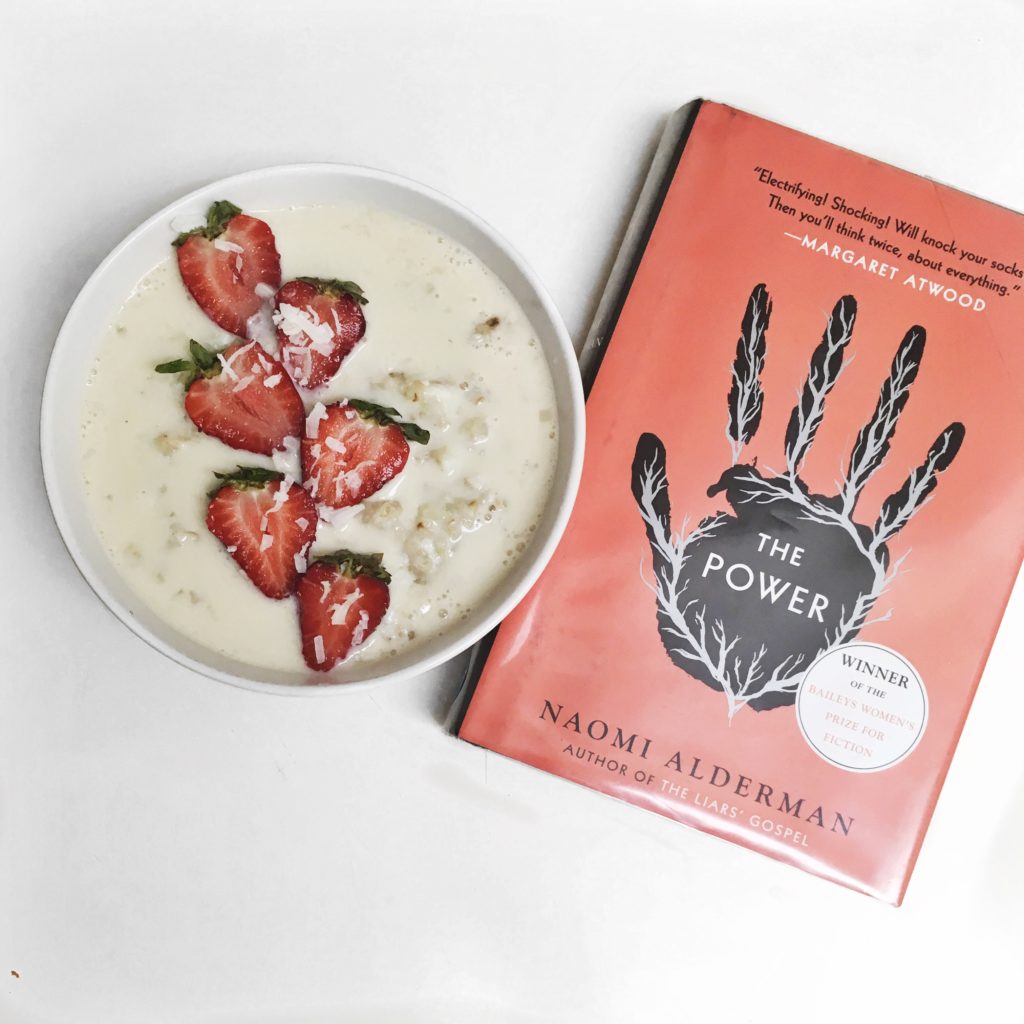
The Power by Naomi Alderman (Viking, 2017)
“The power to hurt is a kind of wealth.”
*
The Cosmopolitan blurb on the back of this book calls The Power a cross between The Hunger Games and The Handmaid’s Tale — and I agree! The premise is this: In an age not too far from today, girls start developing this power that lets them discharge electric charges from their fingertips — powerful enough to hurt, torture, and even kill. Basically, women become more physically powerful than men — a change that alters all the gender dynamics, from who gets elected to office to who is expected to join the army to how couples have sex.
To be clear, this is not a novel about how the world would be better if ruled by women. In fact, Naomi Alderman’s view of human nature is sometimes quite bleak, with people hurting, subjugating, and murdering people — just because they can. But it’s a powerful read that’ll make you question all the assumptions you didn’t even know you had about men and women, what is natural biological evolutionary or even socioculturally ordained.
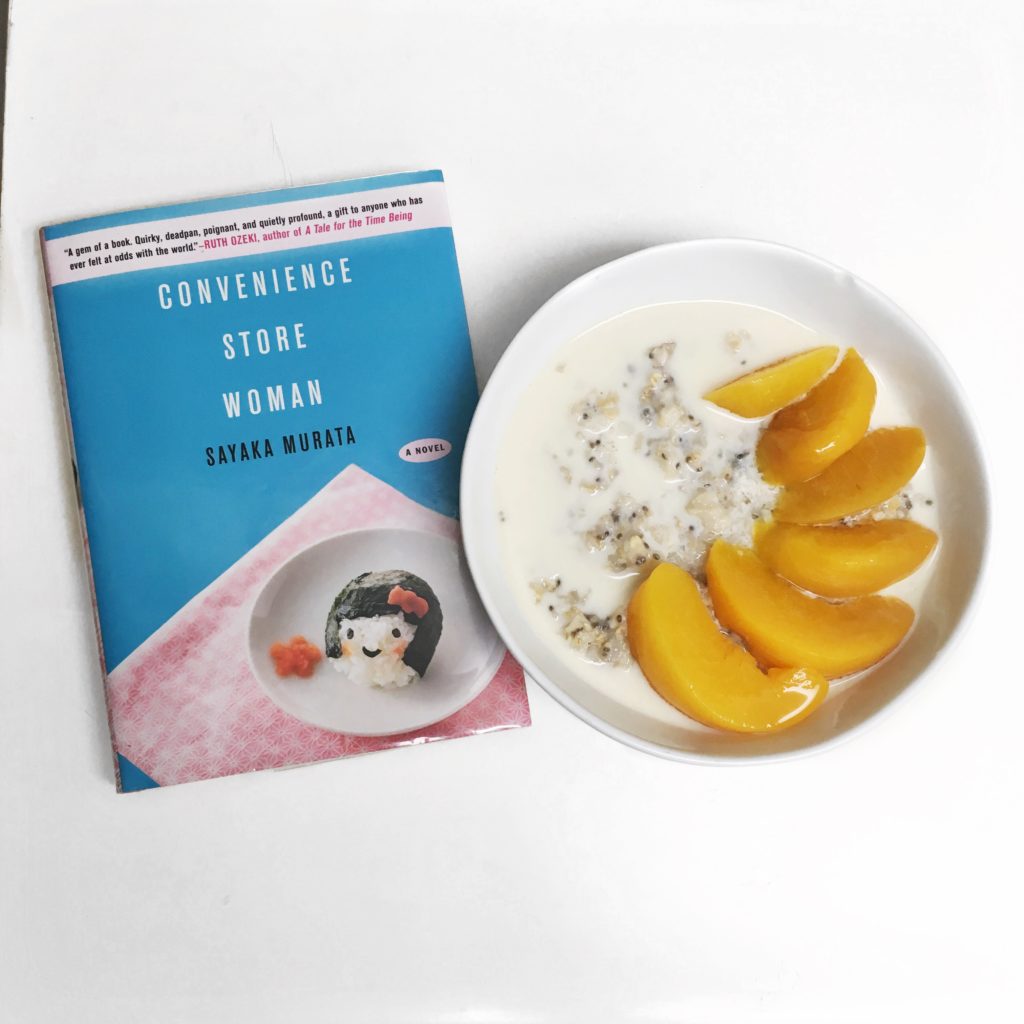
Convenience Store Woman by Sayaka Murata, Trans. Ginny Tapley Takemori (Portobello Books, translated into English 2018)
“I was taking on the form of a person that their brains all imagined as normal.”
*
An oddball woman who’s worked part time at a convenience store all her life — a job that she actually likes that gives her a sense of purpose in life — tries to change to fit in better in a world that thinks her strange for not being interested in a better career or dating and marriage. This book really lays bare the unspoken — yet strictly observed and punishing — societal expectations that push people to strive for a typical upper middle class life, with discontent of the present and a desire to reach some higher next level of wealth and status as the only acceptable norm. Loved this strange and bold book so much I read it in a day.
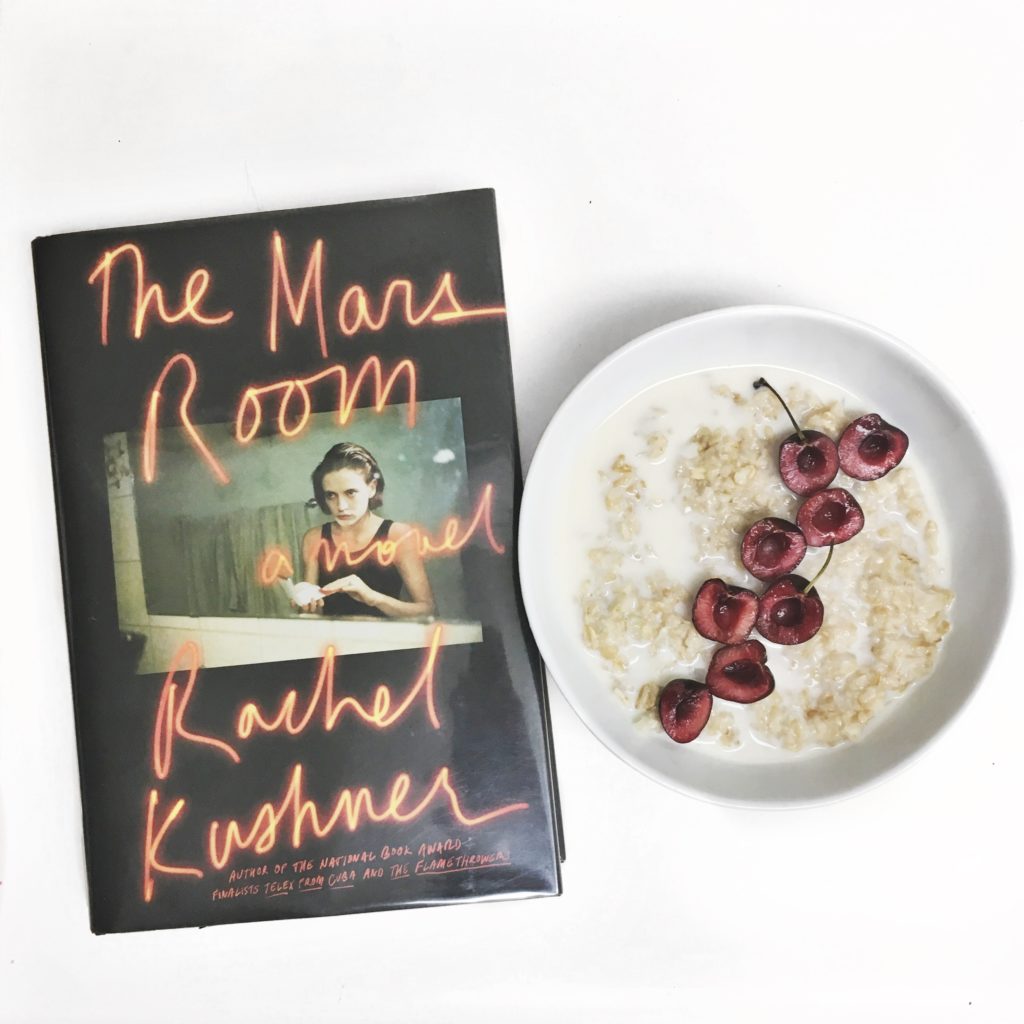
The Mars Room by Rachel Kushner (Scribner, 2018)
“Looking at someone who is looking at you was a drug as strong as any other.”
*
A woman is in prison with two consecutive life sentences. The story starts there — and unwinds with the backstory of her growing up poor and neglected in the shitty area of San Francisco, making a living as a stripper — plus her present day life in prison where she tries to work any angle she can to figure out what’s happened to her son. It’s grittier than Orange Is the New Black — more dispassionate, more visceral, more lonely. Loved this book and can’t wait for the next one by Kushner.
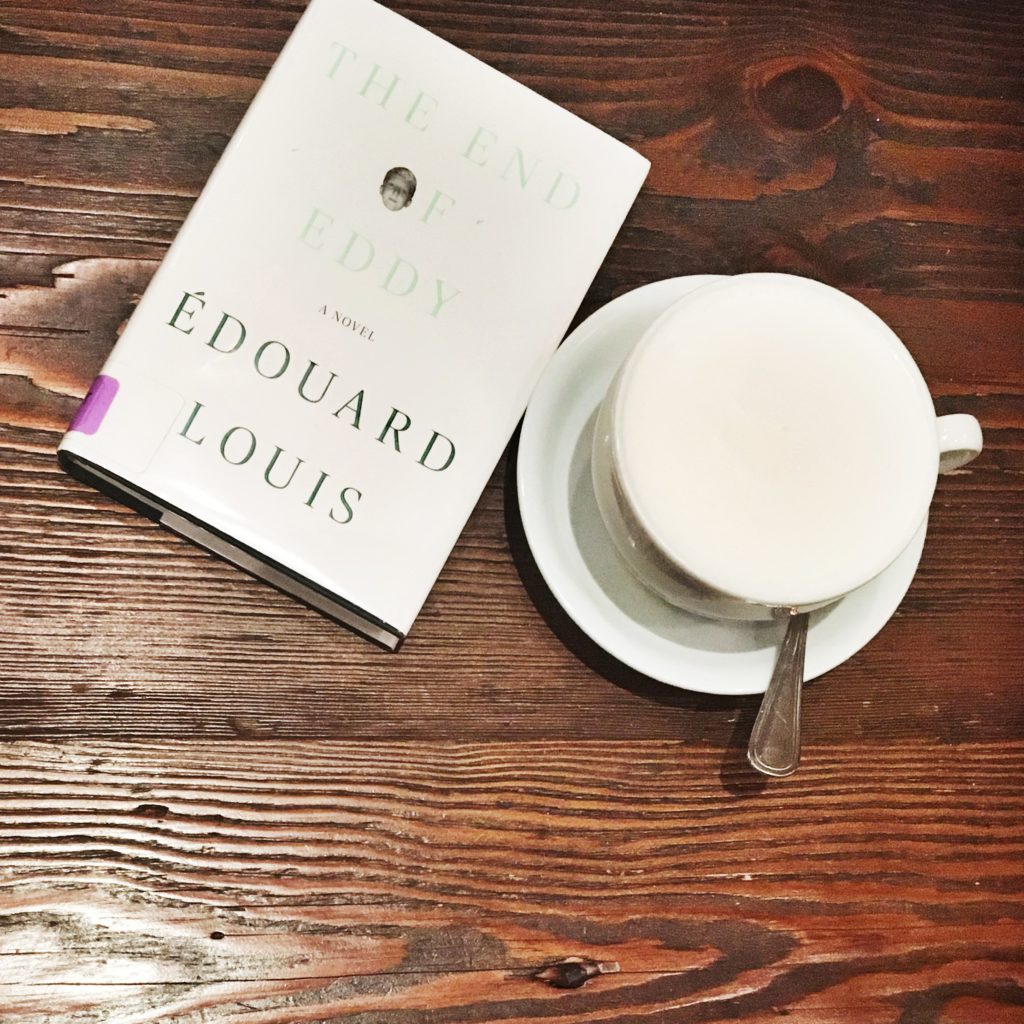
The End of Eddy by Édouard Louis, Trans. Michael Lucey (FSG, translated into English 2017)
“People talk as if what makes it hard to run away is that you feel homesick or that you are attached to people or to other aspects of your life, but no one mentions that it can be hard to do because you simply don’t know how to do it.”
*
A riveting novel about a boy growing up gay and impoverished in a tiny working class French town where men are hard drinking toughs, women babymaking caretakers. A town riddled with alcoholism, domestic violence, and some really painful bullying — based very much on the real life experiences of the author, who was born in 1992. It’s a really different view of life in France than you get from urbane stories set in Paris.

Jesus’ Son by Denis Johnson (FSG, 1992)
“Some of the most terrible things that had happened to me in my life had happened in here. But like the others I kept coming back.”
*
People have been recommending Jesus’ Son to me for years — and now I know why. These stories follow lost men — drug addicted, alcoholic, down and out men living chaotic, grasping lives — that still have an odd wide-eyed, schizophrenic kind of charm. Read the book to be transported to a surreal sort of hell that’s half dream, half the hallucinatory underside of America.
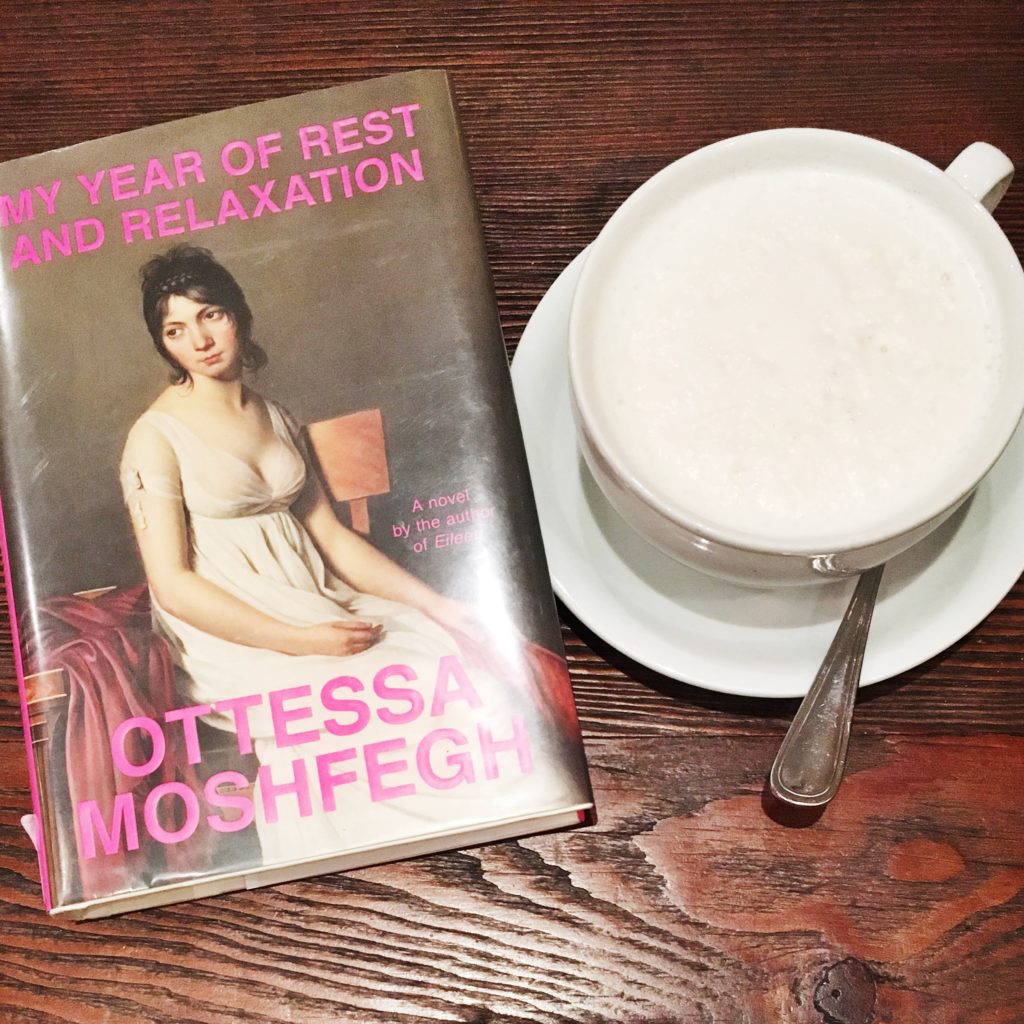
My Year of Rest and Relaxation by Ottessa Moshfegh (Jonathan Cape, 2018)
“The notion of my future suddenly snapped into focus: it didn’t exist yet. I was making it, standing there, breathing.”
*
Ottessa Moshfegh is one of my favorite writers and her new novel didn’t disappoint. For a story about a depressed, disconnected girl who decides to sleep a year away on heavy duty tranqs to “heal” after her distant parents die, it’s a pretty hilarious romp of a book. The ending which coalesces around Sep. 11 was oddly uplifting.
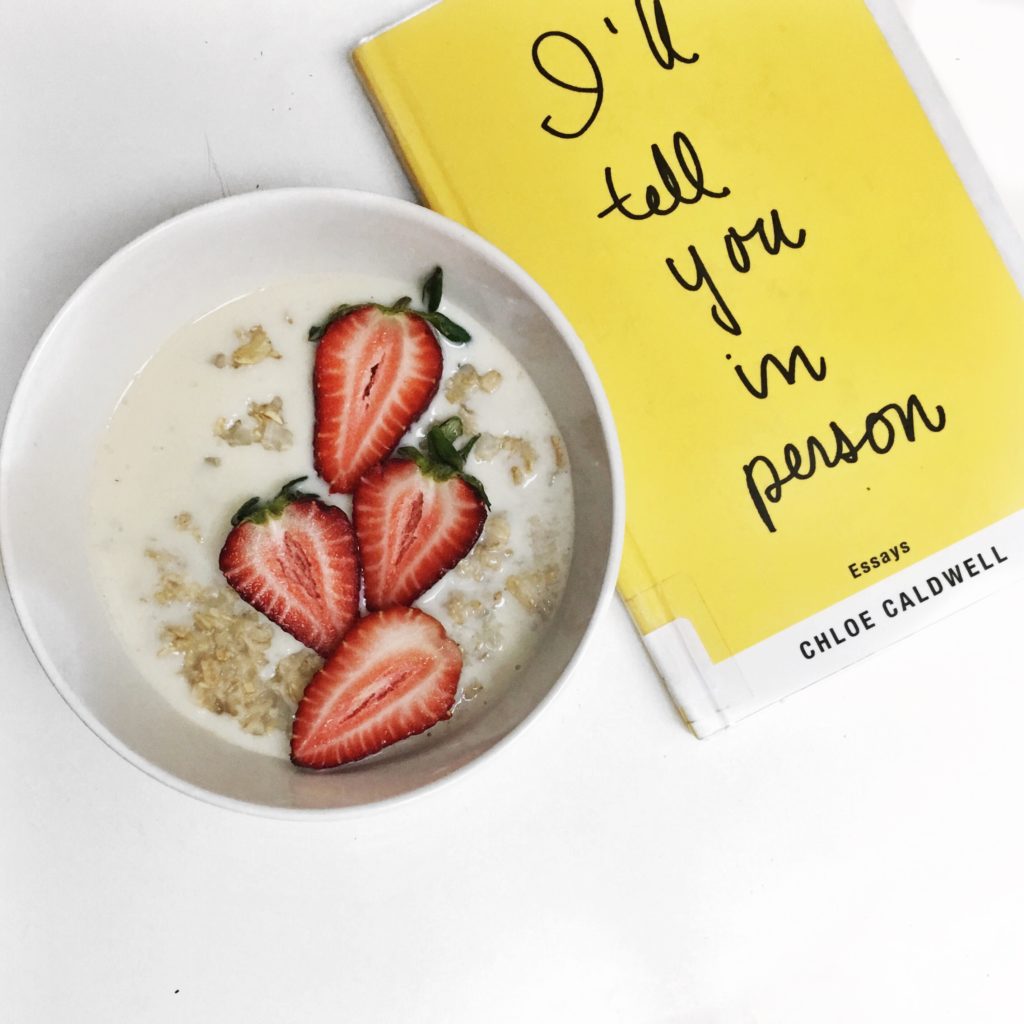
I’ll Tell You in Person by Chloe Caldwell (Coffee House Press, 2016)
“I sometimes wonder what would have happened had I not published that essay collection, because almost all of my best friends, and everyone I’ve slept with since then, I met through that book.”
*
Should I write an essay collection? Loved this one by Chloe — intimate and freewheeling and hilarious stories that run the gamut, from going to the homes of random craigslist guys who’ve agreed to buy her steak to snorting heroin to cope with really bad cystic acne. I still don’t get why you wouldn’t just meet the guys who’ve agreed to buy you steak at a steakhouse, which makes me think maybe I have too pragmatic a brain to write crazy essay collections like this one.
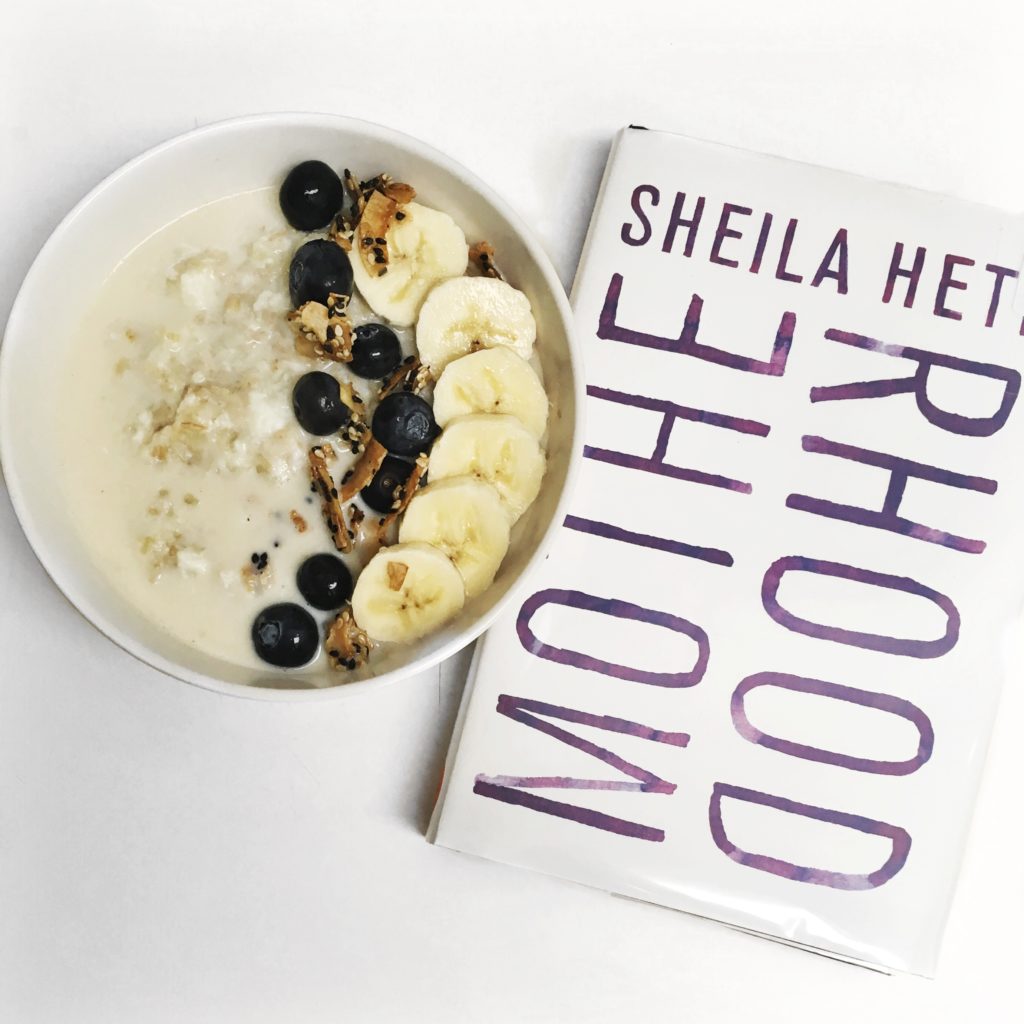
Motherhood by Sheila Heti (Harvill Secker, 2018)
“I know I cannot hide from life; that life will give me experiences no matter what I choose.”
*
To have a child or not — a woman nearing 40 tries to figure it out, interrogating her own desires, ambitions as a writer, hopes, FOMO — and alongside them, the pressures put on by the culture at large, her friends, her lover. I love how Heti lays bare the often unspoken pressures put on and assumptions made about women who choose not to have children — and the honest vulnerability with which she details her own sense of uncertainty.
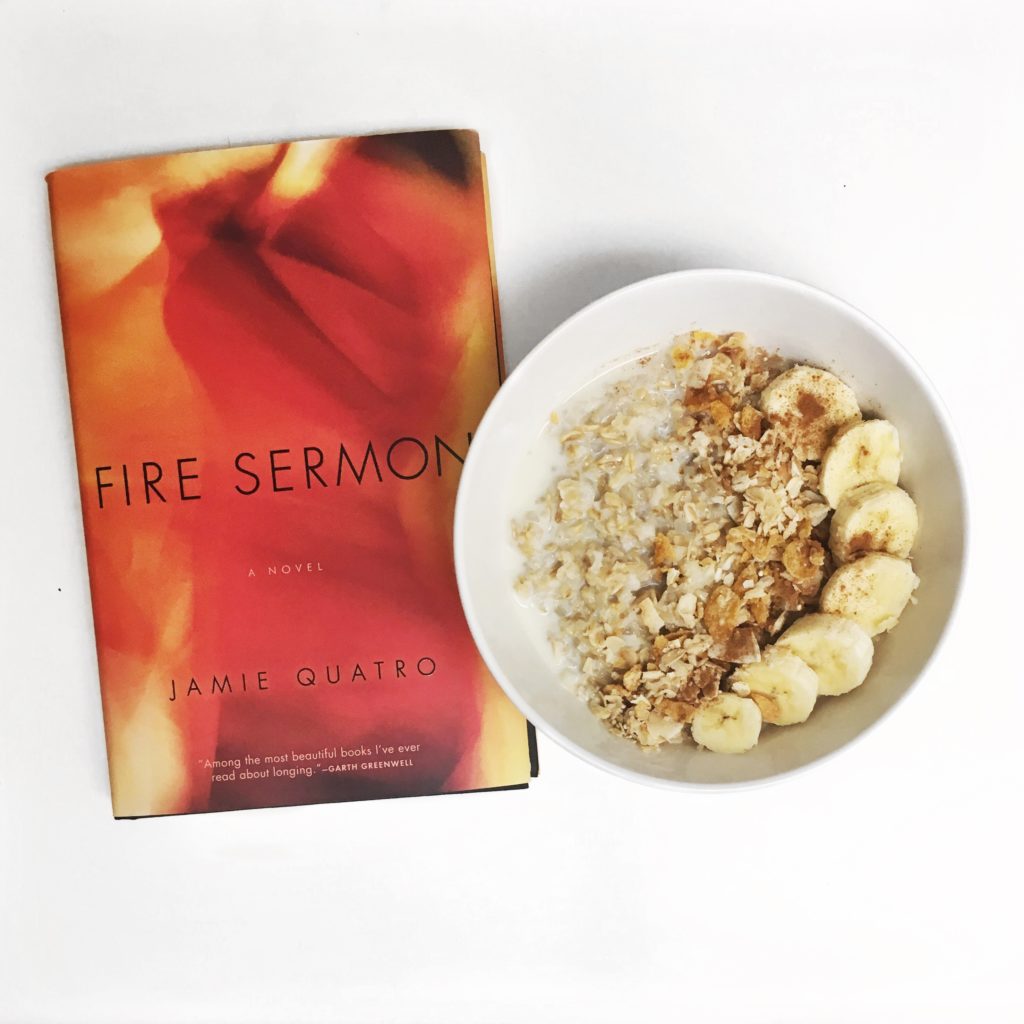
Fire Sermon by Jamie Quatro (Grove Press, 2018)
“I admit that unless something is forbidden I cannot want it with any intensity.”
*
On the surface Fire Sermon is about a married woman who has a few brief assignations with a man married to someone else. Beneath that plot is a gorgeous work about desire and longing and obsession and writing and memory and sin and sublimation and time. Loved this book — reminded me a bit of Lydia Davis’ The End of the Story and Elizabeth Ellen’s Person(a).
__
Get more and more timely book reviews from me on Instagram. And if you have books to recommend, send me a note!

